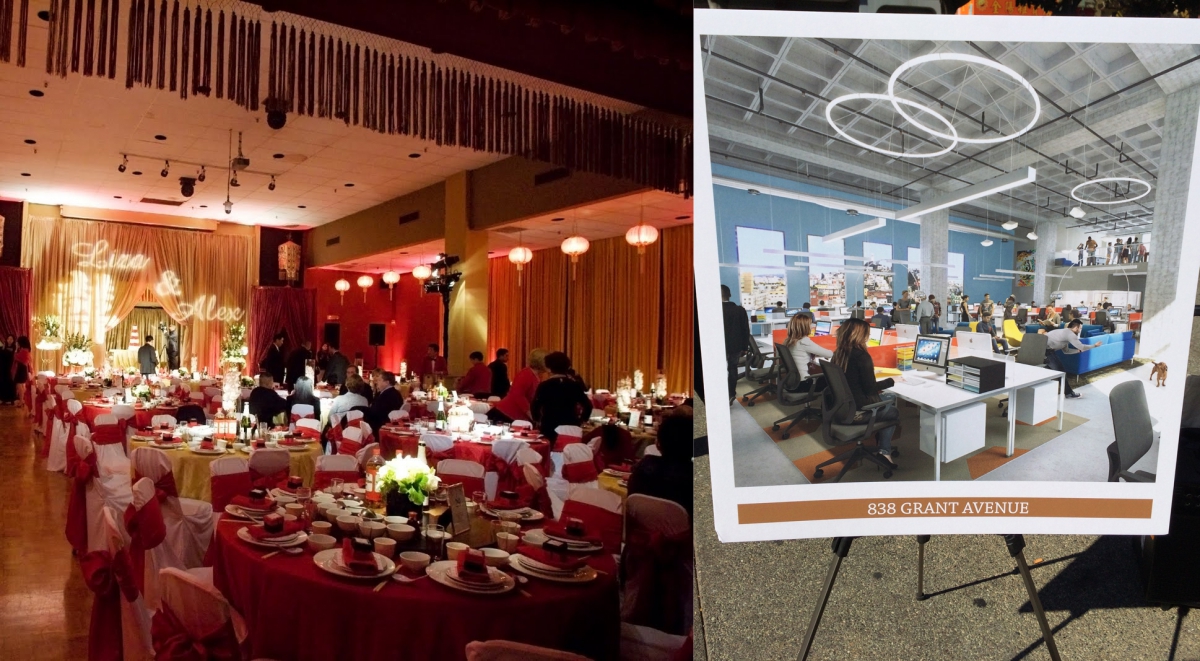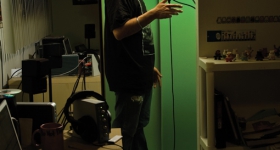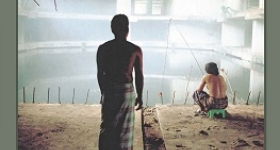Chef Brandon Jew has been preparing for his new restaurant, Mister Jiu’s, for a long time now. Returning to his hometown of San Francisco after cooking stints in Italy and Shanghai, Jew’s new endeavor is a reclamation of sorts. On his Kickstarter, Jew listed his hopes to “revitalize Chinatown” and “bring integrity back to Chinese food.” Even the restaurant’s name is Jew’s attempt to reclaim what was lost in the immigrant experience, using the correct Romanization, Jiu, in the place of his mistranslated surname.
Mistranslation. If I were to boil down my experience of Mister Jiu’s and its lofty goals of restoring glory to Chinatown, then that would be the word.
Mister Jiu’s is located on Waverly Place, an alleyway on the southern edge of Chinatown, and is nestled between other landmarks in the area: the Chinatown YMCA, founded in 1911, and First Chinese Baptist Church, founded in 1880. 28 Waverly, which now houses Mister Jiu’s, has its own history. For the past 50 years, it was Four Seas Restaurant, a community mainstay that hosted family parties, wedding banquets, and community events both for Chinatown residents and for those whose families had moved away. Before that, it was Hang Far Low Restaurant, founded in the 1880s. There are big shoes to fill here.
The first thing I saw when I drove past Mister Jiu’s on a Thursday night was a fixie bike in the doorway. Not an encouraging sign. I walked inside and was greeted by a smiling Buddha and a bar with a few 20-somethings sipping somberly on cocktails. I looked around. Let’s just say folks in the neighborhood were probably eating somewhere else that night. 70% under 30, 95% super fashionable, 10% man buns. The ancestors rolled over in their graves. According to the Mr. Jiu's Kickstarter page,
“Mister Jiu's hopes to revitalize Chinatown and bring back the glory years of this historic neighborhood. We plan to bring integrity back to Chinese food with our careful curation of our ingredients in every facet of our menu.”
Chinatowns all over America are evolving and splintering. Even San Francisco’s Chinatown, arguably the country’s most vibrant, is fighting the forces of gentrification and redevelopment. Another large banquet restaurant, The Empress of China, which opened in 1966, recently closed its doors and has left many wondering what the future holds for us when the landscape changes, when we don’t have any more restaurants for our wedding banquets, anniversaries, or Red Egg and Ginger parties. About six months ago, a tech company revealed its floor plans for the Empress space:

This hasn’t been lost on Jew, who in an interview for SFGate said,:
“A lot of Chinatowns in other parts of the world are just dead. To me, this is the perfect time, because I think Chinatown is in need of change, but it needs someone that really wants to help.”
But what kind of help is, well, helpful? Sitting in the beautifully remodeled dining room at Mister Jiu’s, picking at the fanciest fried rice I’ve ever eaten, I thought about who this food was supposed to represent, what experience it was supposed to translate. Because if this restaurant really is supposed to “bring back the glory years,” then who gets to determine if Jew has succeeded? Would people from the community appreciate what’s going on here? Would the old Chinese grandmas and grandpas enjoy the Devil’s Gulch Pig Head starter dish?
I imagined my grandmother walking through the space, dressed in majestic floral print, 3-layers deep, carrying plastic bags in her arms. I pictured her yelling at the waiters, stuffing napkins in her bag. She’d lean over and whisper loudly, “Why is it so dark? Where is the salt fish in this fried rice? Why are the portions so small?” Which isn’t to say that Mister Jiu’s Chinese food isn’t authentic. Who are we, of course, to judge authenticity when the word never really fit comfortably on our shoulders? But all that to say, would any of our grandmothers feel at home in our evolved Asian American worlds? Would we feel at home in theirs? And what has been lost as we retranslate and mistranslate our experiences in our hopes to help and revitalize our communities, our parents, ourselves?
So let’s not get it twisted. Cleary, definitively, this restaurant is not for Chinatown. No one who actually lives in Chinatown would ever set foot into Mister Jiu’s because I don’t care how organic or locally sourced the ingredients are, $69 for five courses is just not the business when you survived the Cultural Revolution only to move into an 8x8ft single room apartment with six of your relatives. Furthermore, it did not appear that any of the wait staff were Chinatown residents. So sure, it’s one thing to start a hip restaurant in Chinatown, but it’s another thing altogether when you say you’re going to “revitalize” the community. If none of the patrons and none of the wait staff are Chinatown residents, there is no revitalization. Period.
To Jew’s credit, it seems that his idea of doing good for Chinatown is not to create a restaurant for its residents, but to bring in outsiders:
“I think it’s important to have people come to Chinatown, have fun, have a good meal, and be part of the experience of them coming to Chinatown — but make it in a way that they can keep coming back.”
I admit that it was an odd sight, seeing groups of tipsy 20-somethings wandering down Waverly. I doubt they were there to invest in anything beyond Mister Jiu’s; all the shops were closed and the locals had already gone home. It would be a shame if all they knew of Chinatown was this one man’s translation of it.
“We’re calling it Mister Jiu. To me, I don’t want to make it too serious, but it’s a conversation about lost in translation. Obviously my last name is J-E-W. It’s spelled that way because when my grandparents were processed, that’s how the processor wrote it. But a real spelling would be J-I-U. But in actuality that’s not even my last name; my grandparents just used papers to get into America.”
Brandon Jew is Chinatown’s paper son making paper food. We all are. And just like Mr. Jew, it’s indeed our task to interpret and translate our experiences in the ways that we can, through food, family, art, and life, but not for the sake of revitalization. Because while we were attempting the impossible task of bringing back the “glory” to our communities, we didn’t realize that we already had it this whole time, that our food, our culture, our Chinatowns, and, of course, we ourselves, were already good enough from the very beginning.









Comments